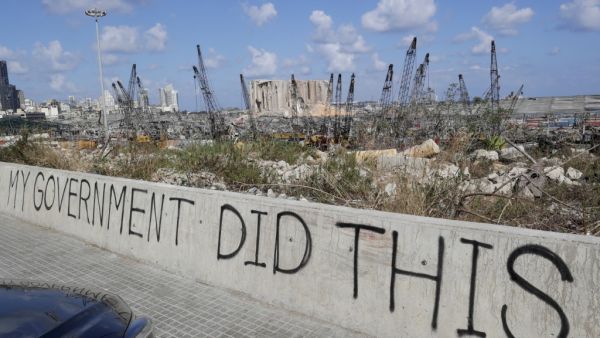Dozens of migrant workers remain missing following the deadly explosion in Beirut earlier this week – with scores more left critically injured, homeless and in many cases abandoned by employers – as activists desperately attempt to track them down amid the chaos.
Alarmingly, despite confirmation by Lebanon’s Health Ministry early Saturday that they had identified more than 60 people still missing in the wake of the blast, a number of activists have reported that migrant workers are not being included in the official missing persons tally.
“We know that there are at least 13 Ethiopian domestic workers who are still unaccounted for, some of them never returning home after the blast – but this figure is only what we have been able to identify ourselves,” said Banchi Yimer, who runs Egna Legna Besidet, a collective of female migrant workers in Lebanon.
“We have been told by other groups that the figure is a lot higher,” Yimer said.
Zeina Ammar, an activist at Lebanon’s Anti-Racism Movement, confirmed to The Daily Star that there were more migrant workers who still remained unaccounted for, but that they were still working on-the-ground to ascertain an exact figure.
The job of finding these missing migrant workers has been made twice as hard by the fact that the notorious “Kafala” sponsorship system, under which all of Lebanon’s 250,000 migrant workers fall under, allows employers to confiscate their documentation and phones at the point of arrival.
At the city’s hospitals, this has also made identifying the bodies of many of the migrant victims particularly difficult.
Earlier Saturday, the Internal Security Forces was forced to issue a public circular with the descriptions of two unidentified bodies at AUB’s Medical Center – one believed to be a Filipino woman in her 50s, another a young Bangladeshi man.
These are but just a few of the migrant workers that lie unidentified in hospitals across the city, victims not only of an avoidable tragedy, but so too of an oppressive system of modern-day slavery that has rendered them nameless even in death.
Amid a bumbling government response, an investigation by The Daily Star has uncovered that a number of the dead are in fact still recorded as “unidentified” despite authorities having received confirmation of who they were.
This has left many holding onto hope for loved ones despite them officially being among the dead.
Although records provided by the Health Ministry indicate that no Ethiopian nationals had been killed in Tuesday’s blast, activists from Egna Legna confirmed through visits to the city’s hospitals that at least two Ethiopian migrant workers had died – information which was reportedly relayed to ministry officials well in advance of the report’s publication.
And yet, even for those migrant workers who have survived, there remains little cause for celebration.
Instead, they have merely been left to fend for themselves in the wake of the blast – trapped far away from home without documentation, devoid of concrete support networks, and reliant solely on the good will of others.
“These people need housing but the government is doing nothing. We are trying to do what we can, but there are just too many people who need help right now,” Yimer said.
“It’s not like they have family here whom they can go to and stay with – they are completely by themselves. They either manage to find someone they know, or they end up on the street," she added.
The Daily Star found a number of female migrant workers sleeping outside the Ethiopian Consulate in Beirut Friday night, many of them stating that they had been abandoned by their employers following the blast.
“I was with my madame in the kitchen when the explosion happened. It lifted us up in the air and threw us across the room. All the glass windows fell on us – I was bleeding so much,” said one woman, showing the stitches all over her neck and arms.
“When we got discharged from hospital, she told me that I would have to leave and that she would call me. She gave me LL50,000 (now around $7) and then dropped me off on the street like this,” she told The Daily Star. “I still haven’t heard back from her.”
Even before the blast, migrant domestic workers have for months been dropped off in the hundreds outside the Ethiopian Consulate, as families crippled by Lebanon’s economic crisis struggle to afford them.
Yet, in a city now struggling itself to rebuild, and with the efforts of humanitarian agencies urgently focused elsewhere, the suffering of these women will only be compounded further in the days and weeks ahead.
As Lebanon attempts to dust itself off amid the rubble, and anti-government protests begin to rage, these migrant workers remain stuck in limbo – either missing and with no loved ones to look for them, or thrown into an abyss of homelessness and despair.
This article has been adapted from its original source.










